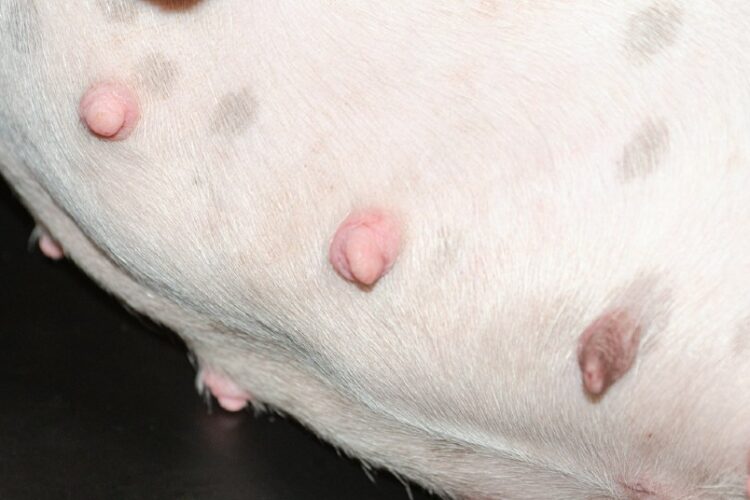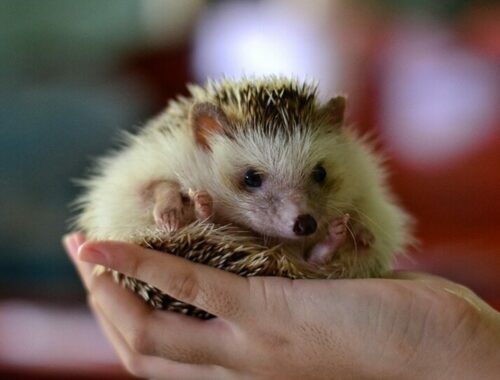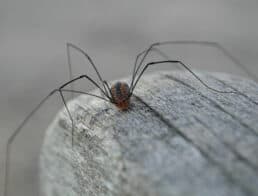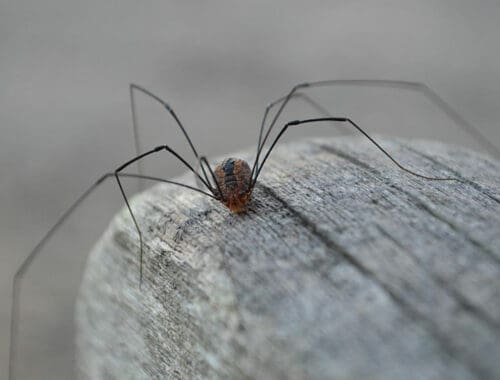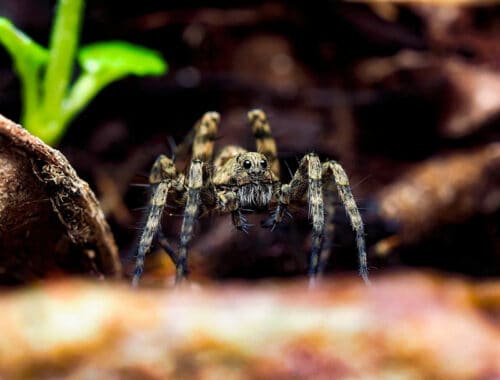If your pup rolls over for a belly rub one day and you notice there’s less room on their stomach than normal, you might wonder what’s going on. Both female and male canines can suffer from enlarged nipples, depending on the cause. Here are 5 possible reasons your dog’s nipples could be enlarged and what you should do about it.
Top 5 Reasons Your Dog’s Nipples Are Enlarged
1. Heat Cycle
- Dogs impacted: Females older than 6 months
- Does it require treatment?: Not usually
If your dog is an unspayed female, her nipples could be enlarged as part of her normal heat cycle. Female dogs begin a heat cycle once they reach puberty, usually around 6 months of age, depending on the size of the dog. Dogs typically have two heat cycles per year, although this can vary based on the size of the dog. Small breeds may have three cycles in a year, while giant breeds may only have one. During the heat cycle, you’ll need to keep your female dog away from unneutered males to prevent an unwanted pregnancy.
What Should You Do?
Enlarged nipples from a heat cycle should resolve on their own once the cycle ends. If not, see your veterinarian.
2. Pregnancy
- Dogs impacted: Females older than 6 months
- Does it require treatment?: Not to resolve, should be under vet care for the pregnancy
In unspayed female dogs, enlarged nipples can be an indication of pregnancy. Early detection of pregnancy can be very difficult, so if you did not witness your dog mating, she could be fairly far along in the pregnancy before you realize it. The pregnant dog’s nipples usually begin to enlarge around day 40 of her term. As she approaches her due date, the nipples will further enlarge with milk and may even leak a little.
What Should You Do?
If you suspect your dog is pregnant, take her to your veterinarian to confirm. Once pregnancy is confirmed, your vet can discuss with you what to do next.
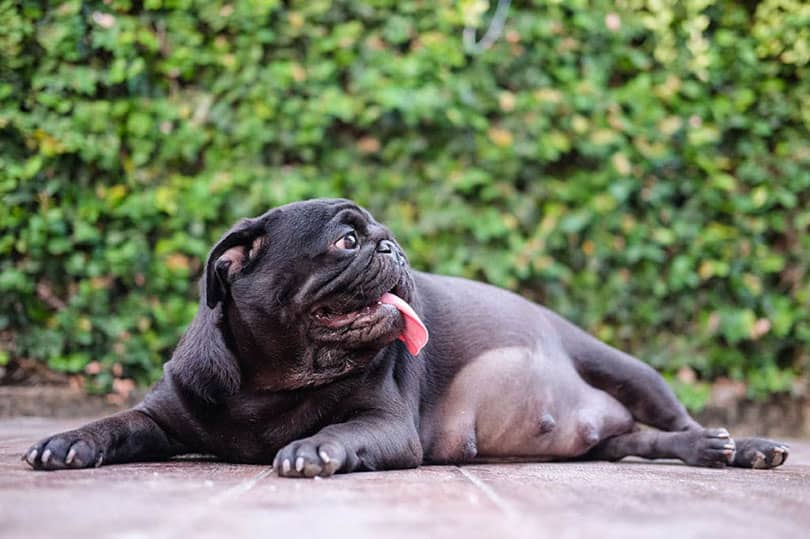
3. Infection
- Dogs impacted: Nursing females
- Does it require treatment?: Yes
Mastitis is an infection of the mammary glands that occurs in lactating female dogs. The infection can be bacterial or fungal in origin. Dogs may be infected if they suffer trauma to their nipples, including by overly aggressive nursing pups. Mothers living in dirty conditions are also more likely to develop mastitis. It can be dangerous if left untreated. Signs include fever, lethargy, inflamed nipples, loss of appetite, and the puppies failing to gain weight.
What Should You Do?
Mastitis requires immediate treatment for the health of both mother and puppies. Take your dog to the veterinarian as soon as possible if you suspect this condition.
4. Tumors
- Dogs impacted: Females and males
- Does it require treatment?: Yes
Unfortunately, swollen nipples can be a sign that your dog is growing a tumor in their mammary area. Most dogs with mammary tumors are female, but male dogs can grow them as well. Tumors can be cancerous or benign and come in all shapes and sizes. They can be hard to detect early on. If cancer begins to spread beyond the mammary area, your dog may lose weight, stop eating or show other signs of feeling unwell.
What Should You Do?
Any suspicious lumps or masses should be checked by your veterinarian. Once you have a diagnosis, your vet will discuss treatment plans.
5. False Pregnancy
- Dogs impacted: Females
- Does it require treatment?: Sometimes
One of the stranger causes of enlarged nipples in dogs is false pregnancy. This condition typically occurs about 4-9 weeks after a heat cycle. It is caused by elevated hormone levels, which normally increase during the heat cycle but, for some unknown reason, sometimes cause pregnancy signs even if a dog never mates. These signs include enlarged nipples, sometimes with actual milk production, swollen belly, and nesting behaviors. Some canines even experience false labor, after which they may jealously guard their toys as if they were puppies.
What Should You Do?
Mild cases of false pregnancy usually resolve without treatment. If the dog is showing severe behavior changes or is physically ill, your vet may suggest an appropriate treatment.
Final Thoughts
As we’ve learned, your dog’s enlarged nipples can have several possible causes, some of which require veterinary treatment. Because nearly all cases of enlarged nipples occur in unspayed female dogs, it is possible to prevent or greatly reduce the chances of your dog experiencing this condition by spaying her.
Featured Image Credit: Kotova Miroslava, Shutterstock
